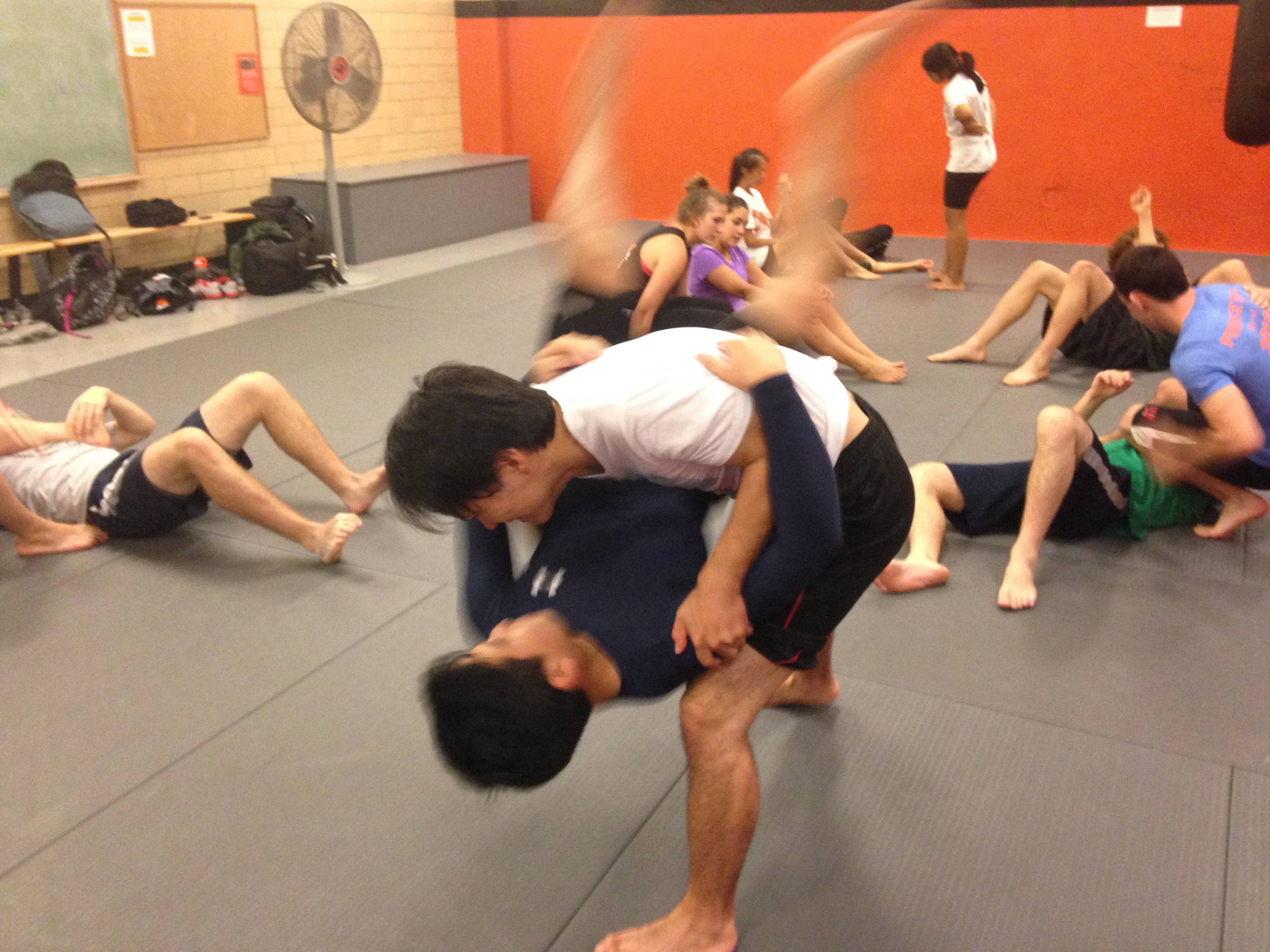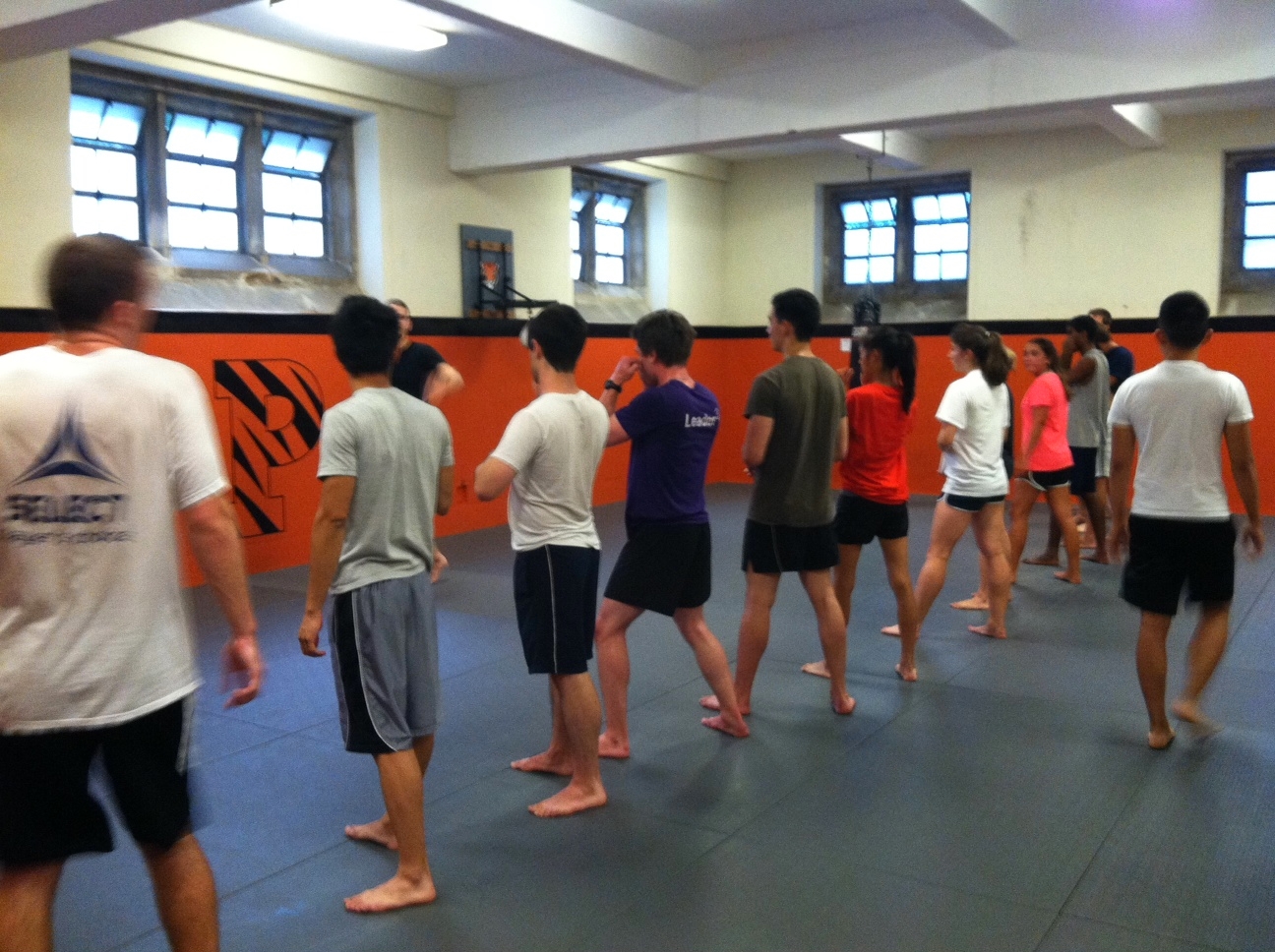When do we practice?
Practice times are determined at the start of each school year. Each branch practices two times per week (with a third practice just for the BJJ competition team), so you can come to as many practices as you'd like!
I'm interested, but I don't have a lot of experience, or martial arts is brand new for me. Will I still be able to join?
We welcome anyone who wants to learn, whether it's for competition, fitness, or self-defense. All we ask is that you show up and work hard. The rest is on us, and we have lots of experience helping beginners rapidly improve.
All of this sounds great if I wanted to do this for sport. But I'm just interested in learning how to defend myself in case I ever have to. How applicable are these arts to a real-world encounter?
Very. When it comes to self-defense, you will not find a single more effective striking system than Muay Thai. With the tools you learn in Muay Thai, especially knees, elbows, and kicks, you'll be able to fend off most attackers and make them think twice about coming after you, without having to resort to "dirty" tactics.
If striking isn't an option, BJJ gives you a powerful arsenal for close-range encounters. Most bar fights end up on the ground, and if you practice BJJ, the ground gives you the upper hand. You can incapacitate someone much bigger, heavier, and stronger than you are with the right technique, and BJJ shows you how to do just that.
And for life-threatening situations, Krav Maga, the official self-defense system of the Israeli Defense Forces, allows you to rapidly and completely incapacitate an attacker using soft tissue strikes, small joint manipulation, and weapons of opportunity. Don't expect your opponents to be your biggest fans when you're done, but if your life is in danger, the techniques you learn in Krav Maga will have your back.



